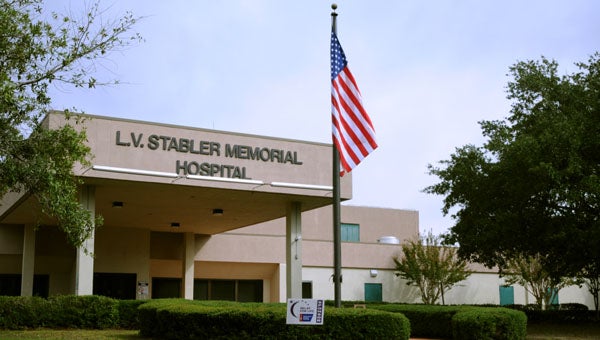Ownership of hospital officially switches hands
Published 12:10 pm Wednesday, November 1, 2017

- Quorum Health Corporation, the previous owners of L.V. Stabler Memorial Hospital, officially handed over ownership of L.V. Stabler Memorial Hospital to an authority established by the City of Greenville Wednesday, Nov. 1.
As of midnight, the ownership of L.V. Stabler Memorial Hospital has officially changed hands from Quorum Health Corporation to an authority established by the City of Greenville.
The authority consists of a five-member board that includes three members from Greenville and two appointed by representatives of UAB.
Jim Dunklin, regional president at First Citizens Bank of Luverne, and Eddie Cook, associate board member with the Alabama Board of Pardons and Paroles, join Greenville mayor Dexter McLendon as the three Greenville board members.
The UAB appointees are Don Lilly, senior vice president at UAB Health System, and Peter Selman, CEO at Baptist Medical Center South.
McLendon said that the Stabler Hospital administrator and chief financial officer would continue to run the day-to-day operations of the hospital alongside UAB management, and not the authority members.
“We’re excited about the future,” McLendon said. “We’re excited about having UAB to help us manage this hospital.”
McLendon added that though there would be no immediate personnel changes, the hospital would undergo a 90-day plan to assess its strengths and weaknesses before making meaningful operation changes.
McLendon stressed that though the finalization of the deal with Quorum and UAB was finally completed, the newfound relationship is only the first step toward addressing the community’s health care concerns.
“We believe that UAB will do a great job,” McLendon added. “But at the same time, we need everybody to understand that this is not a fix-all.
“We need people to use the hospital because if we can’t turn the hospital around and get it headed in the right direction, then we will lose it. It’s very difficult to have a hospital in rural counties. And this is about providing a service, but it’s still a business at the end of the day.”
McLendon added that one of the immediate plans in the UAB partnership was to bring on more physicians, and to change the culture at the hospital from one governed by a corporate entity to that of a personal one whose members live within the community they serve.
“That’s the thing we want everyone to understand,” McLendon added. “This is our hospital now—our town’s—to make better in any way we can, and we want to give it the tender loving care that it deserves.
“We’re going to stress that we treat everyone the same, and that attitudes of family are important for our staff out there. We want them to feel comfortable and to look forward to coming to work. We want to have the best hospital we can possibly have for our citizens and our patients.”



